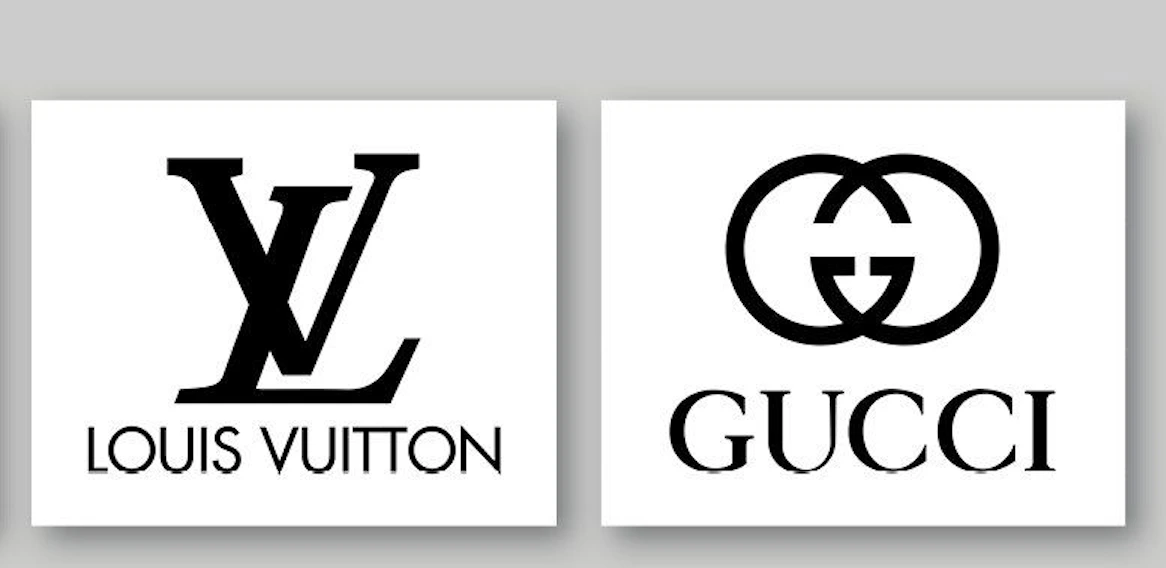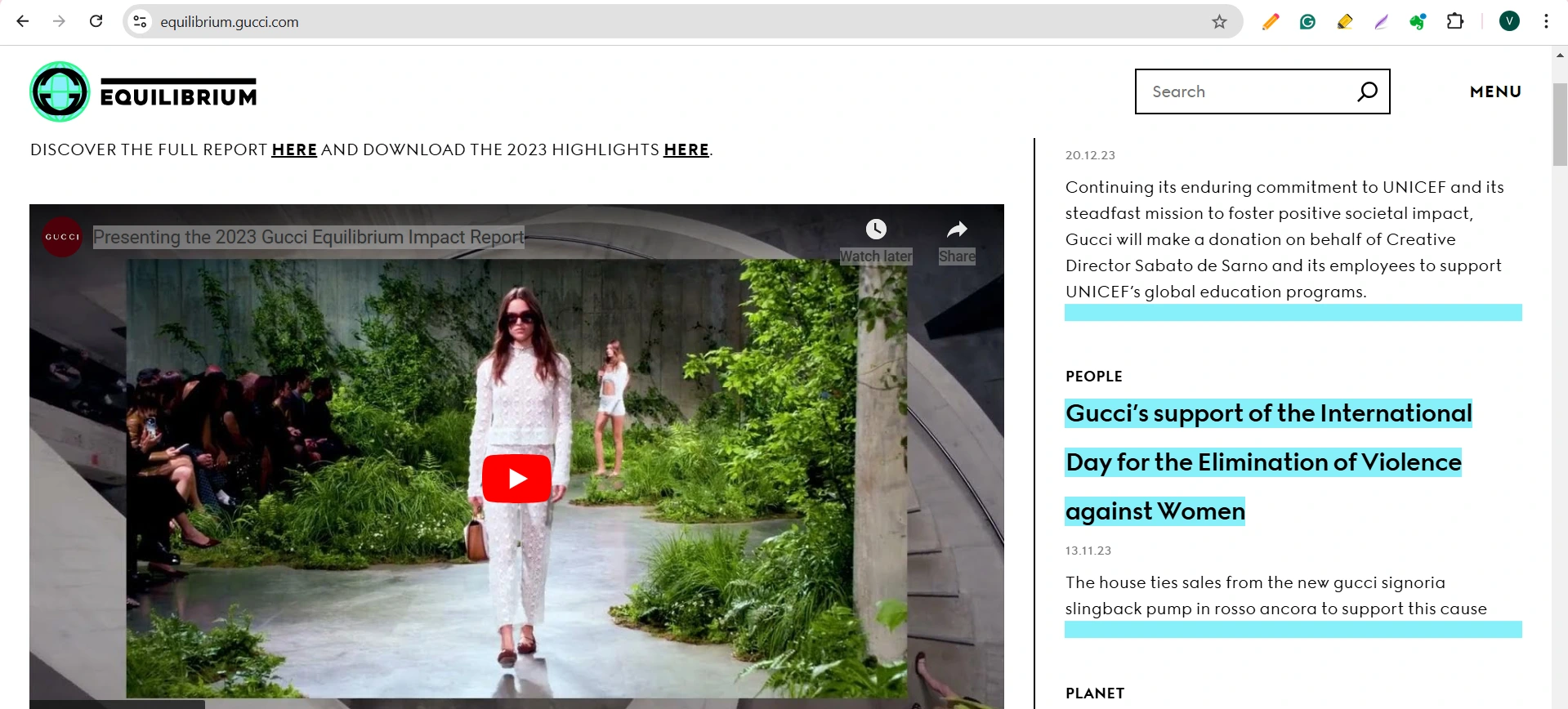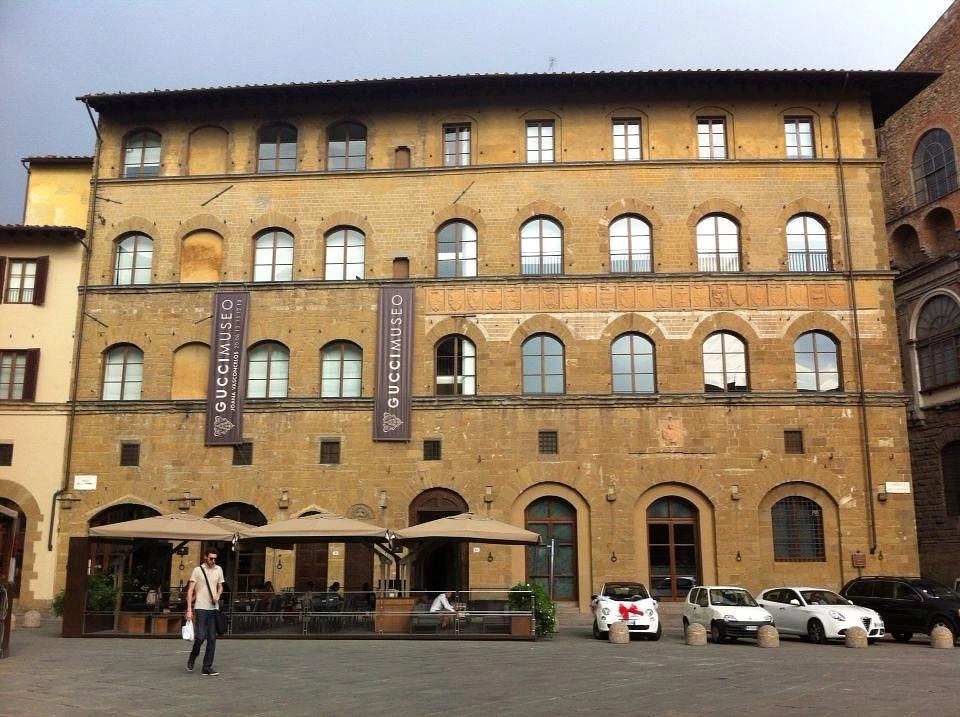
We all know Gucci and Louis Vuitton. These brands have successfully managed to create an impression in our minds. And that’s all that strong marketing & branding is all about. But what made these brands so successful? What did they do right in their marketing strategy?
Let’s explore that here in this blog.
Table of contents
- Overview of the Brands
- Target Audience Analysis
- Marketing Strategies of Gucci
- Marketing Strategies of Louis Vuitton
- In Conclusion
- Frequently Asked Questions
Overview of the Brands
Gucci
Gucci is a powerhouse in the luxury fashion industry, known for its bold designs and innovative approach to fashion. Founded in Florence, Italy, in 1921 by Guccio Gucci, the brand has become synonymous with high-end fashion, pushing the boundaries of creativity and luxury. You might or might not know this but at the time of its inception, Gucci was just a leather suitcase brand. It was in 1951 that Gucci created its first bag. And then the expansion continued and the rest is history.
Louis Vuitton
Louis Vuitton, established in 1854 by Louis Vuitton himself, is one of the oldest and most iconic luxury brands in the world. The industrial revolution was happening at that time and people were travelling a lot. But the suitcases they used were heavy. That’s why Louis Vuitton created the iconic flat-top trunks. Known for its signature monogram and timeless designs, the French fashion house is a symbol of elegance, exclusivity and craftsmanship. Unlike Gucci, Louis Vuitton’s marketing strategy leans heavily on heritage and exclusivity. It carefully balances traditional values with modern digital strategies, making it a leader in maintaining its brand prestige while expanding its global reach.
Target Audience Analysis
Gucci
Gucci targets a broad demographic of 20-50 year old who are drawn to bold fashion statements The brand appeals to consumers who value self-expression, individuality and luxury experiences. Gucci also attracts fashion-forward individuals who seek designer collaborations, celebrity endorsements and eco-conscious designs. With a focus on gender-fluid collections and digital campaigns, Gucci connects with socially aware and progressive buyers
Louis Vuitton
Louis Vuitton focuses on affluent, older millennials and Gen X consumers who appreciate timeless designs and exclusivity. The brand targets high-net-worth individuals who prioritise trends, excellent craftsmanship and status symbols. While Louis Vuitton has started appealing to younger audiences through collaborations with contemporary artists, its core audience values traditional luxury and personalised services.
Marketing Strategies of Gucci
Embracing Digital Marketing and Social Media
Despite being a legacy brand, Gucci is leveraging social media platforms like Instagram, TikTok etc. The brand frequently collaborates with influencers and celebrities, ensuring its products trend among younger audiences. Gucci also uses Instagram Stories and Reels to highlight new launches, announce collaborations, creating an engaging visual narrative.
Influencer Collaborations and Pop Culture Integration
Gucci collaborates with influencers, musicians and pop culture icons like Jin from BTS and Billie Eilish. These partnerships amplify its reach among younger generations.
Sustainability Campaigns

Gucci places sustainability at the heart of its marketing. Its “Gucci Equilibrium” platform highlights the brand’s commitment to reducing environmental impact and promoting ethical practices. Initiatives like sustainable packaging and carbon-neutral goals attract eco-conscious consumers who value responsible fashion.
Experiential Marketing

Gucci creates immersive shopping experiences, blending physical and digital stores. For example, Gucci Garden in Florence offers a museum-like experience where visitors explore the brand’s history. The brand also launched Gucci Vault, ameta-verse platform showcasing vintage collections and artist collaborations, redefining luxury retail.
Marketing Strategies of Louis Vuitton
Storytelling
Louis Vuitton heavily relies on storytelling to market exclusivity and craftsmanship. Campaigns often feature classic designs, highlighting the artistry behind each product. The brand also tells stories through its campaigns, focusing on legacy and timeless elegance.
Take a look at this simple example. It’s a post about their fragrance. Just read the caption and you will know how beautiful their storytelling is.
Celebrity Endorsements and High-Profile Ambassadors
Louis Vuitton strategically partners with celebrities like Zendaya, Ana de Armas etc. These partnerships not only reinforce the brand’s luxury status but also help attract younger audiences globally.
Limited Edition Collaborations
Louis Vuitton collaborates with artists and designers like Yayoi Kusama and Virgil Abloh, offering limited-edition collections that drive demand and maintain exclusivity. These collaborations make products highly collectable, adding to the brand’s desirability.
Immersive Fashion Shows and Exhibitions
Louis Vuitton hosts extravagant fashion shows in exotic locations, emphasising luxury and grandeur. The brand also creates pop-up exhibitions, like “Volez, Voguez, Voyagez,” which showcase its history and craftsmanship, providing audiences with an unforgettable brand experience.
Omnichannel Marketing
Louis Vuitton integrates digital platforms with physical stores to enhance customer experience. From interactive apps to virtual try-ons, the brand leverages technology to stay connected with tech-savvy buyers without compromising its luxury appeal
In Conclusion
Both Gucci and Louis Vuitton have proven to be masters of luxury marketing, but their approaches cater to different audiences. Gucci focuses on being bold, trendy and inclusive, leveraging pop culture and digital platforms to capture younger markets. Meanwhile, Louis Vuitton relies on exclusivity and craftsmanship, appealing to buyers who value timeless luxury. For fashion business owners, the key takeaway is understanding the importance of defining your audience and tailoring strategies that resonate with their values. Whether it’s through influencer partnerships, experiential marketing or heritage storytelling, the right marketing strategy can transform a brand’s identity and reach. If you’re looking to develop standout campaigns like Gucci or Louis Vuitton, partnering with a skilled digital marketing agency can help you turn insights into impactful results.



